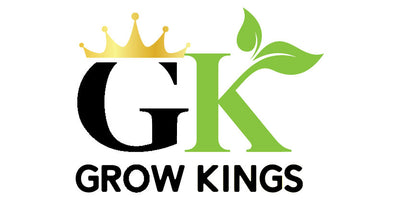Growth Techniques Using Hydroponics
The cultivation of plants through the use of water and salts that have been dissolved in it is known as hydroponic farming. The usage of closed pipe systems that have a steady flow of water passing through them is standard practise. In recent years, this kind of farming has gained popularity because to the several advantages it offers over conventional agricultural methods that rely on soil. The elimination of the necessity for farmers to cultivate soil-based crops opens up new possibilities for the manner in which and the locations in which people farm.
Organic Farming Methods
On the other hand, organic farming entails cultivating plants in soil without the application of any fertilisers or other artificial chemicals of any kind. Despite the fact that some farms may speed up crop growth by using pesticides, organic farming is more environmentally friendly and sustainable than conventional farming methods. Farmers have a lot of confidence in the product quality that they get when they use natural products to speed up the growth of their crops. Organic farming is moral and results in a product that is free of toxins and beneficial to human health; nevertheless, maintaining quality can be challenging because organic farmers are dependent on the weather.Sustainability
It would seem that hydroponic farming would be the best option in terms of environmental friendliness. When crops are grown on less area, 90 percent less water is needed to do so since the water that is utilised is recycled. Moreover, there is less of an impact on the ecosystems that surround the farm, which is a common problem associated with huge farms. Since hydroponic farms can be built virtually anywhere, they are ideally suited for use in congested metropolitan settings where space is at a premium. Vertical farming is an environmentally preferable alternative since it makes better use of available space and conserves water. Hydroponic farming allows for greater freedom for creativity and, depending on the circumstances, may be the more environmentally beneficial method. Organic farming is also sustainable.
The Standard of the Item
When it comes to the production of high-quality crops, both hydroponic and organic farming have their individual advantages. The more concentrated compounds that can be dissolved into the water and provide the plants with more nutrients, the better the results that may be obtained from hydroponic farming. Unfortunately, hydroponic farming is restricted in terms of what it is able to cultivate because not all crops have the necessary technology to support their growth presently. Organic farming, on the other hand, is adaptable to the cultivation of any sort of crop, and the cultivation method's emphasis on natural practises helps to ensure the food's unadulterated quality. Consumers place a higher level of trust in a product when it has been verified as pure and awarded the organic seal of approval.
Danger as well as Efficacy
Due to the fact that farmers have less influence over the environment, organic farming is associated with a greater potential for loss. On the other side, hydroponic farming gives the farmer more control over some aspects of the growing process, which ultimately leads to greater uniformity and productivity.
Conclusion
In conclusion, both hydroponic farming and organic farming each have their own individual advantages and disadvantages. Hydroponic farming is a method that is both more efficient and more sustainable, whereas organic farming is both more pure and more versatile. The decision between the two approaches should be made based on a number of considerations, such as the kind of crop being grown, the geographic location, and the individual's preference.

